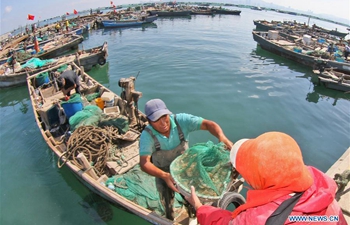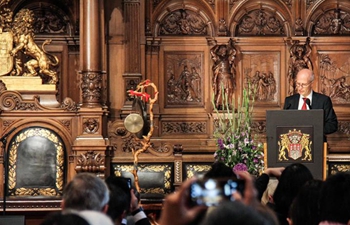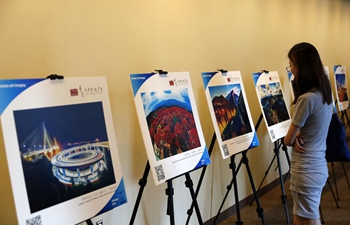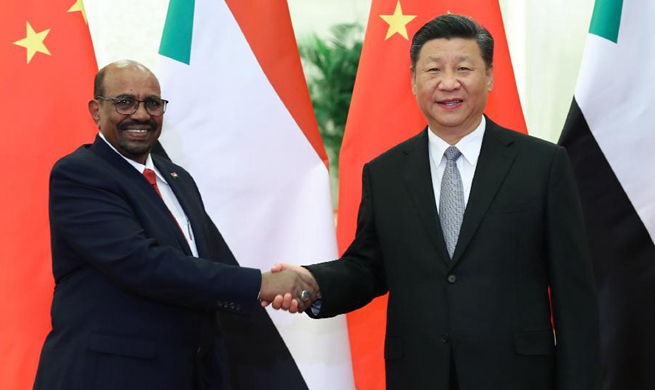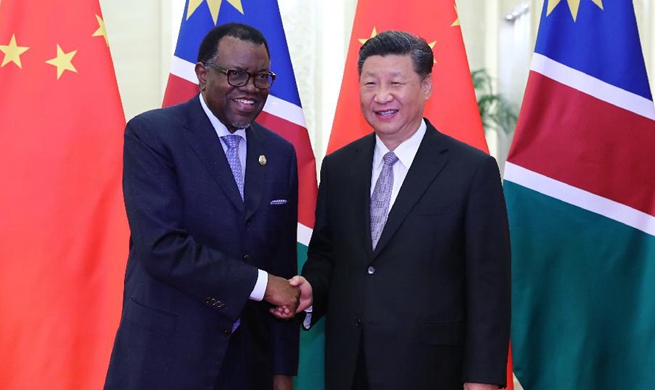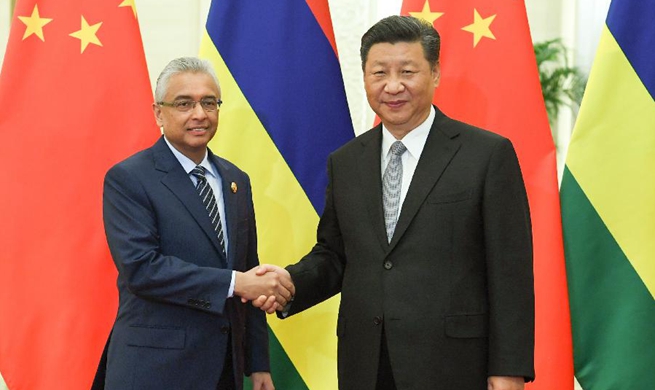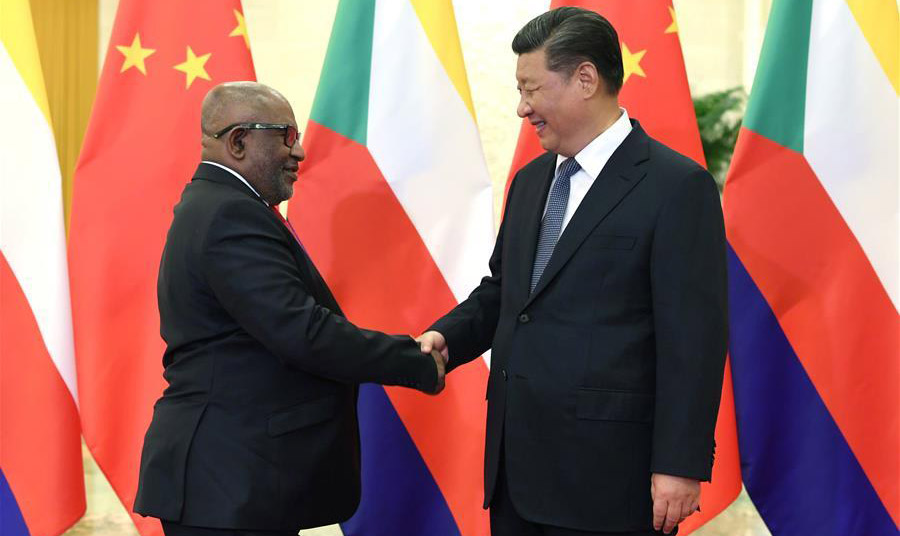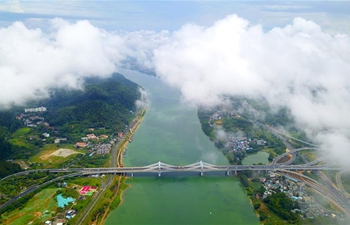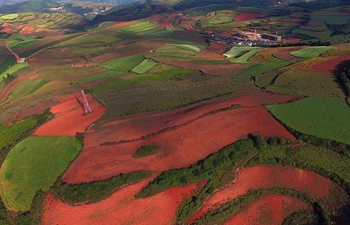by Luis Brito, Wu Hao
SAN SALVADOR, Sept. 1 (Xinhua) -- El Salvador, which established diplomatic ties with China last month, is eyeing China's consumer market, hoping to find a niche for its agricultural exports, including premium coffee and sugarcane, a local official has said.
"People are already starting to ask me what opportunities are going to open up for exporting to the Chinese market," Salvadoran Agriculture Minister Orestes Fredesman Ortez said in a recent interview with Xinhua.
China and El Salvador announced the establishment of their diplomatic relations last month, while agreeing to boost cooperation in various fields, such as trade.
The Central American country is looking to expand its sugarcane exports to China after starting shipments last year, while introducing new products such as honey.
"We think honey can find a market in several Chinese provinces, as well as fish. We believe great opportunities can open up for exports, such as cacao. We are strongly reactivating cacao production," Ortez said.
Salvadoran officials are preparing to travel to Beijing to clinch initial agreements that will lead to expanded bilateral trade.
Stronger trade in agricultural goods could increase employment opportunities in the sector by 10 percent to 20 percent, Ortez said.
In the past decade, El Salvador's agriculture has once again become a driver of its economy. Coffee and sugarcane, El Salvador's top two products, together generate nearly 400,000 jobs in the country, which has a population of 6.5 million people.
"As export volume grows, it will definitely have a positive impact on employment," Ortez said.
El Salvador exported almost one billion U.S. dollars in agricultural goods last year, according to the ministry.
El Salvador also imports Chinese goods for diverse sectors, including fertilizers, fungicides and agricultural machinery, said Ortez.
Salvadoran farmers are interested in more than just trade with China. They hope cooperation in scientific innovation and technology transfer can help boost yields and added value.
"We need to develop plant breeding for vegetables. It's an issue that we have to import all of our vegetable seeds. We produce very few vegetables here from (our own) seeds," Ortez said.
El Salvador wants to learn from China's experience in shrimp and fish farming, cultivating in arid areas, and industrializing coffee, cacao and dairy.
China's advanced agricultural techniques combined with its ancestral agricultural knowledge "can help us in the transfer of technology and improvements to develop our agriculture to give production added value," Ortez said.
The China-proposed Belt and Road Initiative, which aims to spur global economic growth through international cooperation in infrastructure building and other areas, presents El Salvador's agriculture with another opportunity to benefit.
El Salvador, for example, could use a shipyard for building boats needed for industrial-scale fishing, or machinery to capture and channel water for use in areas afflicted by drought, said the minister.
"We have several projects, like the creation of a wholesale food distribution center that would let us reorganize the country's agricultural commerce, and there's already a study on it," Ortez said.
"We are going to put all of this on the table, as part of the agenda. I hope we will be able to take advantage of the benefits of the Belt and Road Initiative, which is a great project on China's part," he said.
Salvadoran officials and business owners are getting ready to participate in the first ever China International Import Expo (CIIE) to be held in November in Shanghai, China.
The trade fair will help Salvadoran exporters identify opportunities for their leading products, Ortez said.
He is confident the agricultural sector will play a key role in strengthening ties with China and spurring the economy.
"We believe that in five years, the role of agriculture in the country's economy ... is going to be notable as part of the transformation we hope for," said Ortez.




